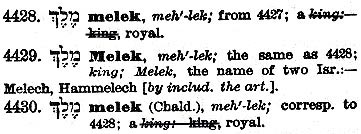
‚¡Hjqπ ıpµ √KÚFµ UIµ ÿHÚœ∆Òµ ¿Ò¡gµ ‚çœgµ
UJjµ çÐs¡Ò∏ Ýorthodox wp Roman
catholic,Ý Iesus Cristo ∆Ú¡Òπ Protestant Ÿ–J Jesus
Christ wŒ¡Òµ ç™P¡Òµµ wœ÷ÚAπ ÿŒAıðAµ
D“µ UJjµ pÕ‘Òµ ‘ç? ÝzRUhUµ U√Òµ “ÿõ ÿ√™µ œ‘Ò? IqUµ H¡gµ œ‘Ò? ¡HÚ¡Ògµ šŒ»ðÅjµ
√DUµ ¡H––Ãπ
√€√OŒπ ÿÿ“œ‚qµ √Ϭ; ∑° π≠°-≠¢ wq√D“g∏
°∑ ““œ‚qµ ÷qêµ ∆IÑҵ “ÓáÒgµ “¿Ò¡Ã#µ —|èÒµ
ÿUI„qµ “Ù&µ ‘DêIµ wqêRŒUµ
œ R∏
ÝÝ
¢∑ wR∆Òµ —U»êJµ ÿP∆Òqµ ‘DêIµ UI„qqµ —Ж‘Òpπ √KÚFqµ
—–tÃpDµ —¡‘Ò∑ gR˜HÙ‘ÒIµ zRUhUµ H¡gµ œ‘Ò∑ çCD∏
ÝÝ zRUhUµ ÿHÚ¡‘Òµ UIµ “zRUÃ⁄Œqµ
“HÚ¡‘Òµ ÿ√™µ wqŸBœµ ¡HŒg christ- ian Ý
Z¡Òqµ “;¡qµ “wq–¡Ú÷s‘Òµ UpÐtπ CÃ⁄qµ Ÿ–J Ýcristos “ cristianos ÝÃ\R›µ √‘∆èÒqµ
Hÿgµ —Œ[gI∏ gzz¡sµ ÿgRÐÒ√Òµ —ÞPRµ √KÚFµ wq’Úµ zRUhUµ wqèDBœµ
“÷ÚAµ Ã√DzÃpD∏
ÝÝ zRUhUµ Ã∆thµ ÿÃÃ≈—√‘Òµ “ÿgµ
wqŸ√™µ √€√OŒµ ÿ¬ıRŒgqµ waœg ∑™ 𨩠ÿHÚЖ‘Òqµ wqç∑
ÝÝ ¨©∑ wsIµ —ç¿Òêµ —ÐRpµ —ÚÿNT¡ÙIµ
`Ÿ≈Бҵ œÐRµ ¿Ò¡Òµ IUzSjµ œq∑ wR∆ÒqIµ wqþgµ Cçµ ∆[¡‘Òµ П¡Òg∏
ÝÝ ≠∑ wR∆Òqµ ŒAıðAµ MÃs‘Òµ
‹Iµ —UœT‘Ò∑ çСšIµ ÷qêµ ∆Þ‘Ò∑ ÿHÚ¡‘Òqµ IUzRµ UpÐt∑ IUzRœfÕ‘Òqpµ Ua“fÕ‘Òqµ
»š¡‘Òπ ÷Ú¿Òµ √Ϭ;π HÚ»š¡‘Òµ IƒP;µ ™° ÿHÚŸR∆‘Òqµ
wq√D“g∑
ÝÝ ´•∑ Rp`UIµ T‘ÒDqµ ¡Ú„D–µ
‘Ÿµ ÞR∆ÙUµ ‘™∑ `Ж‘ÒIµ ÐÚ÷Ùµ ‘Ÿµ —qÌ“ÚŒµ —√™‘Ò∏ Ùõ ŒAıðAIµ
—|Ÿµ ‚√gµ √Ò¡Òµ Ã∆ ∆ Òπ a÷Òµ F†aqIµ —UÃHN∑ Ÿ»µ √…√ÒRgIµ √€√OŒµ
—qÌ“ÚŒµ zRUÃ⁄Œqµ wŒ¡Òµ ÞPøÕ‘Ò∑ ÿHÚ¡‘Òµ ÿHÚŒTÿqπ √KÚ¬Òµ
wqþgµ Cçµ Ã∆[¡¯µ “ÃœTµ Œ˚Cπ ¬ıRŒgµ —qÌ“ÚŒµ ‚√gµ ∆ÚŒUÃINµ
\çÑÒπ ÿ—qÌ“ÚŒµ ∆Åjµ Ÿ»µ √…√ÒRÃ#qµ zRUÃ⁄Œqµ —C˚Õ‘Ò∏
ANTIOCH, Turkey.Ý Ancient Antioch was called the "queen of the East." The
modern town, called Antakya, is a small trading center in the southern part of
the country, about 20 miles (32 kilometers) from the Mediterranean Sea coast.
The town has soap and olive oil factories, cotton textile
mills, and other processing industries. The chief crops are wheat, cotton,
grapes, rice, olives, vegetables, and fruit. Silk, shoes, and knives are also
manufactured.
The old city was founded in about 300 BC by
one of Alexander the Great's generals and became the capital of the Seleucid
kings of Syria. It drew great wealth from the caravan trade to India and grew
into a center of Greek culture.Ý Just
beyond its 70-foot (20-meter) walls lay the grove of Daphne, filled with
magnificent temples that attracted pilgrims from many parts of the world. Antioch,
even after it had passed under Roman rule, attracted the reforming spirit of
the Apostles. Barnabas and Paul--and perhaps Peter--are said to have sown the
seed that eventually converted half the population to Christianity. Here the
name Christian was first used (Acts xi, 26).
ÝÝ ÷√pjqµ —qÌ“ÚŒµ ÿHÚЖ‘Òµ
Ã#Rzµ ∆ÚBqπ w…qµ ÐÚ÷Ùµ ¡—MRµ “ÃHµ wqŸœ ≈jπ “fOzµ √Ϭ;gµ H––gµ çiCD∑
¡÷ÚAIµ IUzRµ “Cçµ çfŒD∏
ÝÝ çAµ zRUhUµ ‘çIµ zRUÃ⁄Œqµ
ÿHÚ¡‘Òµ ZDµ √KÚ¬Òµ “Jgµ ÃœUhµ y≈е “‚√gµ lCµ —qÌ“ÚŒµ ¡HÚЖ#µ Ÿ»√…√ÒRgµ
√¡Œµ wqèÚBqµ ÿÃ∆Þµ ZDµ ∆ÚBqπ Z¡Òµ IqIµ ‚çqõ [èÒUœgµ Tçr≈‘Òπ ÿHq»«XIµ
gRÐÒIµ ÃÐth fD∑ “Cçµ wqŸIpÿ‘Òπ —qÌ“ÚŒµ ÿ–Ozµ ‘–µ √¬Dµ “ÃHµ wqŸœ ≈jIµ
ÿf‘»µ œ‘Ò∏
ÝÝÝ ÿ√KÚ¬Òµ UIµ ŒAƒÒıµ ∆ÚBqµ ¡ÙCµ √šPgµ IqIµ —çœgµ ƒ≈;gµ
‘çIµ „‘ÒUµ —ŒUÐtI∏
ÝÝÝ ÿ√KÚ¬Òµ UIµ “ŒAƒÒıµ ‘Ÿ Jesus ÝwqèÙgµ ûÿR? zRUhUµ ÿHÚ¡‘Òµ “ƒaPı⁄µ TçBqµ
“—MRµ ‘çIµ “–Rzµ wqŸBœµ wŒUf‘Uqπ ¡–Ozµ ‘–µ ıpµ UIµ ÿBœ‘Òqµ
wq√D“gµµ
ZEUS. The greatest of the gods in
classical mythology was called Zeus by the Greeks and Jupiter, or Jove, by the
Romans. He was the father of gods and men, protector of kings, supporter of law
and order, and avenger of broken oaths and other offenses. He watched over the
state and the family and over strangers and suppliants; his hand wielded
lightning and guided the stars; he gathered rain clouds; he ordained the
changes of the seasons and regulated the whole course of nature. Zeus, with the
other gods on Mount Olympus, ruled over the affairs of mankind.
DIONYSUS. One of the most widely worshiped gods
of Greek mythology was Dionysus. At first, he was only the god of wine. Later
he became the god of vegetation and warm moisture. Still later he was the god
of pleasures and of civilization.
ÝÝ Zeusµ ÝwP∆Òµ ÝDion-ysus; ∆ÚBqµ yesus(jesus) Brµ wq–¡Ú÷sµ
çÐsD∏ —Úÿ∆ÒUµ “ŒAıðAµ
ÿÃC“‘Òµ ÿ√KÚ¬Òµ UIµ —¡√BœÒqµ yApgµ —çzèÒI∏
U√Òqµ wqèq¡‘Òšµ j–Rµ ÿHÚBqaqµ ÿŒAƒÒıµ
UIµ gRÐÒIµ UC¡‘Òµ œ‘Ò∏ ŒAµ ÿ√€√OŒÅÕ#µ “ŒAıðAµ ¿Ò¡Ã#µ ˇŸ¡¯jµ
∆ÚBœÒπ ƒÒıµ gRÐÒ√Ò w≈;gµ œ‘Ò∏ ŒAƒÒıπ w≈;gµ “ŒAıðAµ H¡gµ œ‘Ò∏
Ý
ÝÝ “¡çµ wqŸIq√¡“g‘Òµ P∆Òµ `a—Ú¡Òpı⁄‘Òµ
ÿ CatholicÝÝ ÝZDµ H‘Òžµ Cçπ
gzz¡s‘Òµ
ÿ√KÚ¬Òµ UIµ ŒAƒÒıµ Yahsua
(Yahshua) wqŸBœµ –Dϵ çfŒD∑ U¡÷ÚAπ ÿ∆ÒUµ ‘çIµ Jesus
¡sµ wqŸHçBqµ “÷ÚAµ —ÿq∏

ÝÝÝ